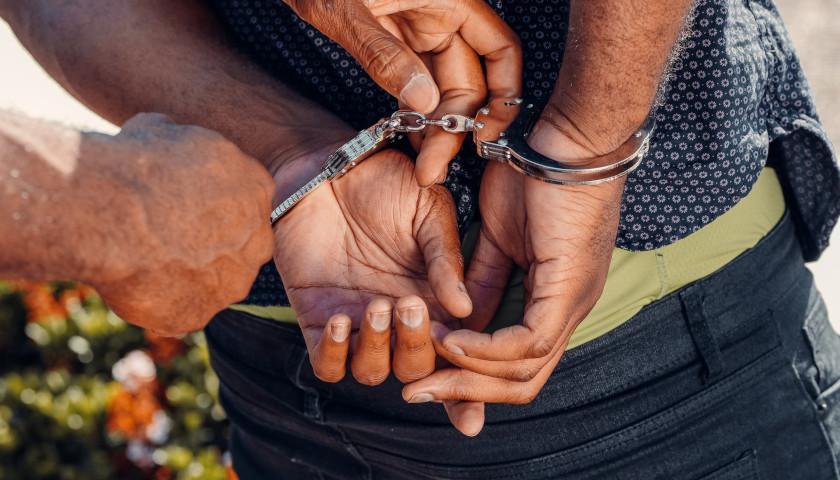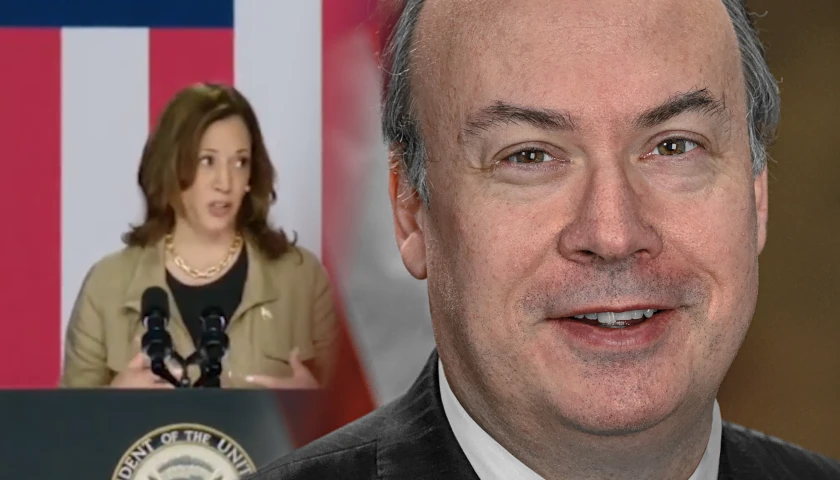Jury selection in the second trial over the facilitation of prostitution by former Phoenix New Times owner Michael Lacey and some of his former associates began on Tuesday in federal court. Co-owner Jim Larkin, who was also being prosecuted, killed himself on August 1. Both were accused of facilitating the sex trafficking of minors through their site Backpage, but since the pair were charged with facilitating prostitution and money laundering instead, an earlier trial ended in a mistrial since a judge concluded prosecutors had too many references to child sex trafficking. Lacey and Larkin owned the Phoenix New Times for years, known for its scathing attacks on conservative Republicans.
A victim who said she was sex trafficked at age 14 through the now-defunct website is helping bring the site operators to justice. Testimony from Eryka Brewster, now 24, helped lead to a conviction of the former site’s CEO, Carl Ferrer, her pimp, and the ongoing prosecution against Lacey.
Some of the underage victims have been too upset to testify and come forward, so much of the prosecution’s case has relied on the testimony of Brewster (pictured above). She told The Arizona Sun Times that she fell into trafficking at 14 due to trying to escape an “unfit, unstable home.” A man named “Weezy” offered her a way out. She said he threatened her that if she did not work for a pimp, he would sell her to someone in Mexico. Feeling trapped, she complied, and Brewster said the pimp, Jovan “Jay” Miles, trafficked her in Houston and Corpus Christi through the use of backpage.com. She said she was a victim of statutory rape over a period that lasted over two months, including by five to 10 men within 24 hours.
“The only way my trafficker could make any money off of me was through a Backpage ad; he worked nowhere else but there, although I did later find out that I showed up on other sites like Erotic Monkey which basically scraped ads from Backpage and posted them to their site without knowledge,” she said. Investigators found the ads about her on Backpage, and her father put out a Missing Persons bulletin on her.
An attorney familiar with the case, who declined to be identified due to fear of retaliation, told The Sun Times that the defendants have been trying to delay the prosecution for years. Brewster said she’s been told that her testimony finally moved the case forward and was instrumental in getting guilty pleas from Ferrer. Lacey and Larkin have pleaded innocent to the various charges.
Miles was sentenced in 2016 to 40 years in prison. Ferrer is expected to be sentenced to only five years in prison due to his cooperation with the prosecution.
A federal grand jury indicted Lacey and Larkin on 93 counts in April 2018. The indictment said “the overwhelming majority of the website’s ads involve prostitution.”
The website was accused of bringing in $500 million in prostitution-related revenue. Prosecutors contended that Backpage gave free ads to prostitutes and cultivated arrangements with others who worked in the sex trade to entice them to buy ads. The indictment said that “official policy, when presented with an ad featuring the prostitution of a child, was to delete the particular words in the ad denoting the child’s age and then publish a revised version of the ad.”
A Senate investigation found that Backpage knowingly facilitated underage sex trafficking on its site by actively editing ads posted in the “adult services” section. Lacey, Larkin, and Ferrer appeared before the Senate Permanent Subcommittee on Investigations in 2017 but declined to answer questions, citing the First and Fifth Amendments.
After the Supreme Court declined to hear an appeal from women suing Backpage, upholding an appeals court decision that held that the internet shield law, known as Section 230 of the Communications Decency Act, protected the site from liability for the content of the ads, Congress changed the law. The revised Section 230 now allows more state and civil lawsuits against websites related to online sex trafficking for “knowingly assisting, supporting or facilitating” crimes.
The bipartisan support against the website included Kamala Harris. She brought charges against Backpage while California Attorney General, referring to the site as the “world’s top online brothel.”
Ferrer, who is from Texas, pleaded guilty in Arizona, California, and Texas. He pleaded guilty to conspiracy to commit prostitution and money laundering. The DOJ press release stated that “he worked with his co-conspirators to create ‘moderation’ processes through which Backpage would remove terms and pictures that were particularly indicative of prostitution and then publish a revised version of the ad.”
The DOJ said he committed money laundering by trying to hide the income.
“Ferrer admitted that he worked with his co-conspirators to find ways to fool credit card companies into believing that Backpage-associated charges were being incurred on different websites, to route Backpage-related payments and proceeds through bank accounts held in the name of seemingly unconnected entities, and to use cryptocurrency-processing companies for similar purposes,” the DOJ said.
Ferrer agreed to testify against Lacey and Larkin as part of the plea deal.
Some of the prostitutes who were trafficked through the site live in Arizona. One of them, who has since left the profession, told KVOA regarding the site’s owners, “If you ask me, they’re just as bad as the pimps, the tricks, all of it.”
Lacey and Larkin sold off New Times in 2012. Under their leadership, the paper frequently ran articles about child molesters and murderers next to articles attempting to portray conservative Republicans as bad people. The pair launched Backpage in 2004 as a free classified website. New Times merged with The Village Voice in 2006, expanding its publications across the country. Village Voice sold off its publications in 2014, and New Times sold Backpage the same year.
While Brewster is glad the perpetrators are being brought to justice, she said believes some of her victims’ rights have been violated along the way. Brewster said she believes she was not informed of key details involving the Texas prosecution of Ferrer, despite being the star witness. She said while it’s great the prosecution has gone after the perpetrators vigorously, she has not yet seen any restitution herself and hopes to obtain protective services or assisted living to help her get her life back on track.
Brewster said, “It’s unfair that it’s been 10 years, and due to the defendants dragging this out, I have not received any restitution as justice yet, even though the money was seized from the site and court pleadings have ordered that it will be distributed to us victims.”
The pleadings in the Texas criminal case are uploaded here.
– – –
Rachel Alexander is a reporter at The Arizona Sun Times and The Star News Network. Follow Rachel on Twitter. Email tips to [email protected].





